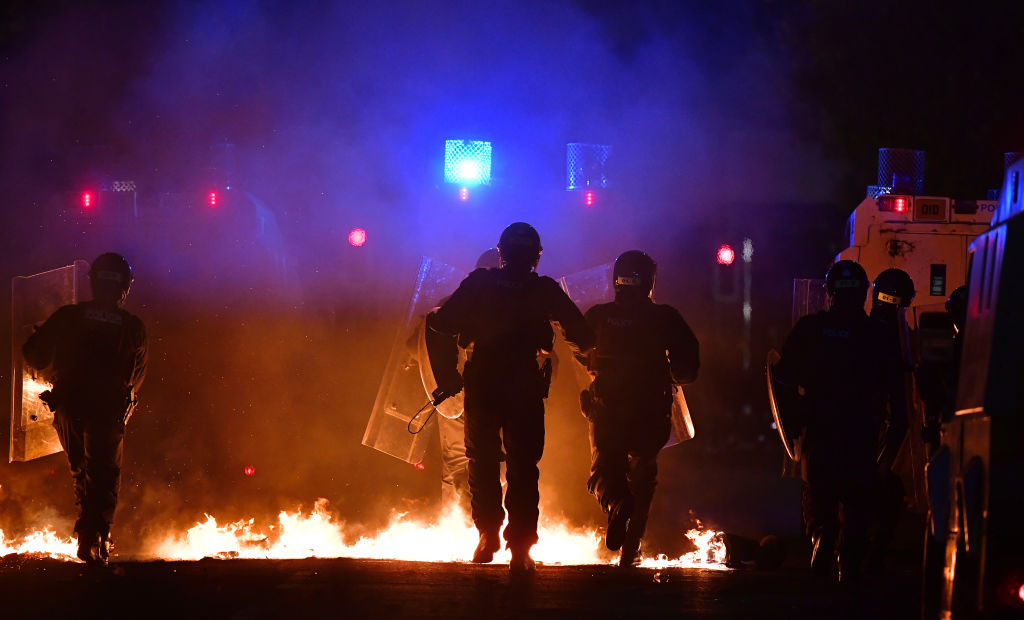The data breach at the Police Service of Northern Ireland, which has seen the personal details of all serving officers and just under 2,500 civilian staff accidentally released as part of a response to a Freedom of Information request, is the sort of grotesque, IT foul-up normally reserved for the realms of satire like The Thick of It.
There is a slim chance that any officers in the Province will be laughing. The attempted murder of DCI John Caldwell in front of his young son in Fermanagh earlier this year underlined acutely that dissident republicans hellbent on killing police officers ‘haven’t gone away you know’, to quote Gerry Adams.
In the excellent series of books, A Force Like No Other, Colin Breen, a former officer with the PSNI’s predecessor force, the Royal Ulster Constabulary, sets out through a series of interviews with former colleagues the strange facts of life facing a police officer in Northern Ireland. Checking under cars, rarely socialising and lying about your profession were and remain the norm.
That abundance of caution has been fundamentally undermined, with obvious ramifications for the safety of officers. Officers in rural areas, those based in places in Northern Ireland where the forces of the Crown are viewed in a dim light such as Londonderry, and Catholic officers who have had to tread carefully in their community as a result of their employment have been put in particular danger.
The episode is a grimly fitting motif for the wider malaise afflicting Northern Ireland
This leak is undoubtedly the most serious security failing in the history of policing in Northern Ireland since the 2002 break-in by the IRA at the force’s Castlereagh holding centre; during that episode, the codenames of informers working inside both republican and loyalist terrorist groups were stolen. This is a different order of magnitude.
There was, however, a smack of inevitability about this. It has been clear for a considerable length of time that the PSNI is no longer an organisation fit for purpose.
In 2023 alone, the force has been involved in a series of incidents likely to be deemed implausible for the Keystone Cops, ranging from a man being able to simply walk into a police station and climb into a police Land Rover with the keys still in the ignition, to a document containing the names of all officers involved in President Biden’s April visit being found lying in a Belfast street. Only a month ago, documents with the details of over 200 officers were stolen from a private car.
An atmosphere of distrust now pervades the rank and file towards the force’s senior leadership. Simon Byrne, the chief constable whose period in charge has been characterised by weak stewardship – notably failing to intervene and enforce regulations at the show of strength funeral of the former IRA prisoner Bobby Storey at the height of the Covid-19 pandemic – has returned from his summer holiday and said he will not resign.
Byrne, who like many of his contemporaries in the mainland seems more interested in PR-friendly, ‘right side of history’ gestures than actual policing, is firmly in the eye of the storm. The local press in Northern Ireland is already reporting that the detail contained within the data leak is much worse than first feared, with implications for members of MI5 and the judiciary.
Even if Byrne is replaced, his successor will inherit a hollowed out, demoralised and financially crippled organisation. The associated costs of trying to recover from this catastrophe – and presumably, regulatory fines and legal costs associated with cases brought by individual officers – will strain the PSNI, already facing a £141m funding gap.
The episode is a grimly fitting motif for the wider malaise afflicting Northern Ireland. Failing, directionless public services and a culture where gaffes and missteps are baked into and expected of some of the cornerstone institutions of daily life. If the police cannot manage an Excel spreadsheet, it is fair to ask what hope do the people they are meant to protect have.






Comments